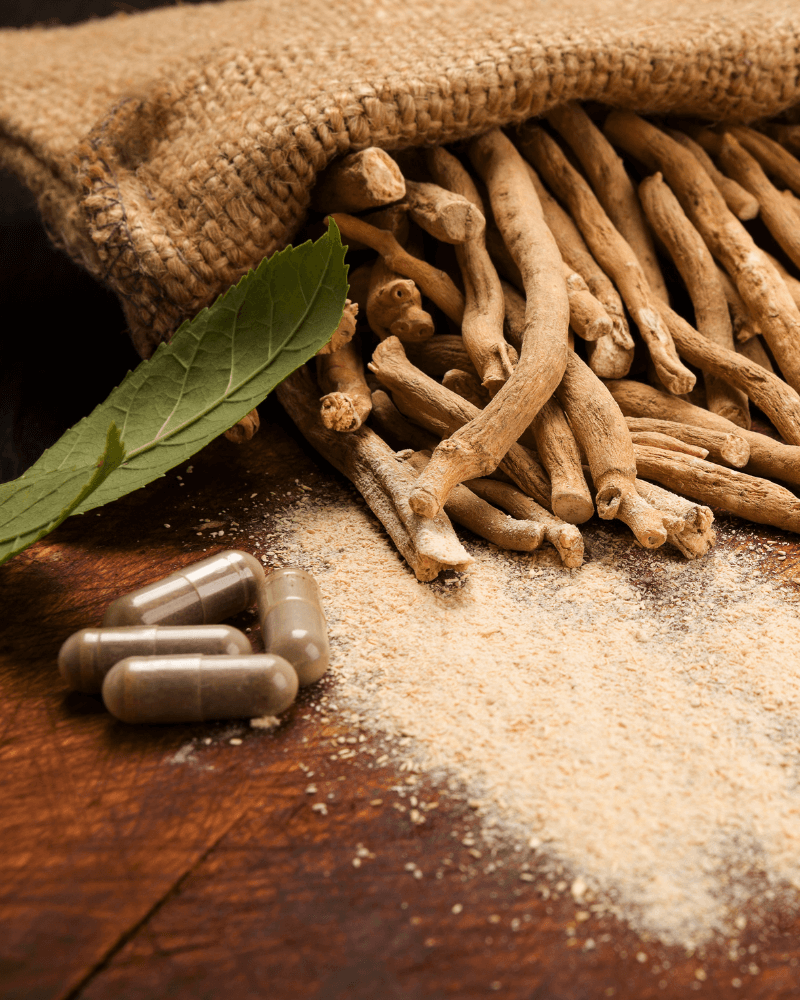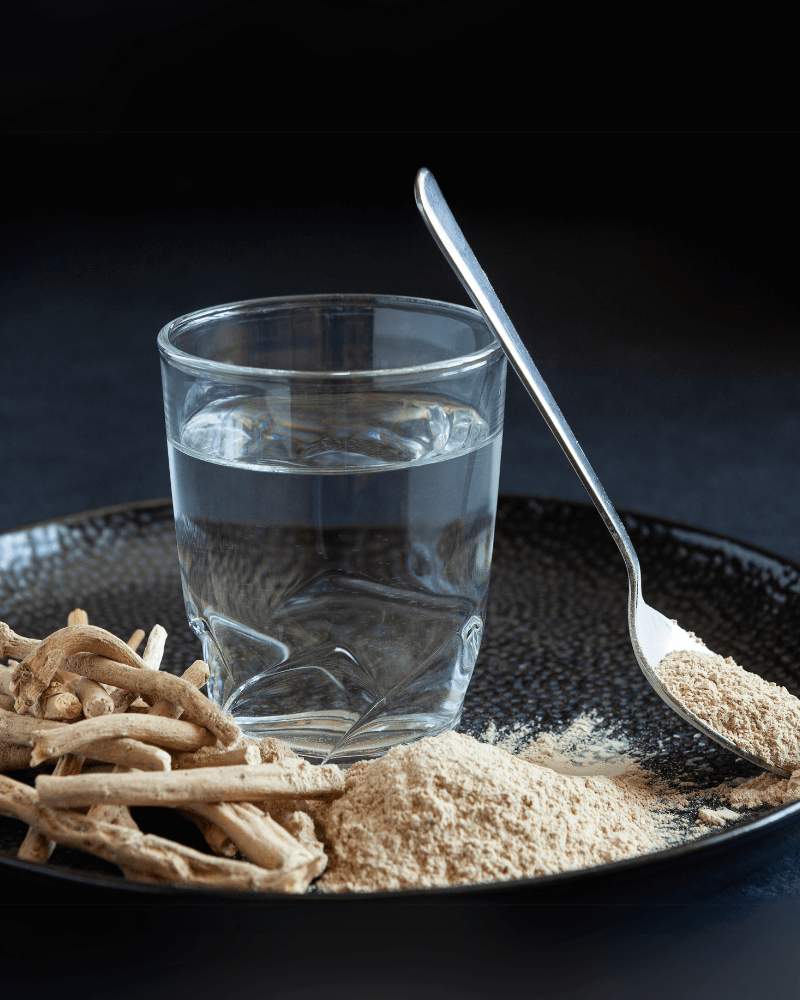What are raspberry leaves?
Raspberry leaves are the green leaves of the raspberry plant (Rubus idaeus), which are traditionally used in naturopathy. Our ancestors were already aware of the health-promoting properties of these leaves and used them as a remedy for various ailments. The leaves are usually picked fresh and dried to preserve their valuable ingredients. They are rich in vitamins such as vitamin C, minerals such as iron, calcium and magnesium as well as secondary plant substances that have an antioxidant and anti-inflammatory effect. Due to their many benefits, raspberry leaves are a popular ingredient in teas, herbal blends and natural remedies.
Raspberry leaves: ingredients and their effects
The healing power of raspberry leaves is primarily based on their diverse ingredients, which can have a positive effect on the body. The leaves contain high amounts of tannins, which are known to have an anti-inflammatory and astringent effect. Flavonoids such as quercetin have an antioxidant effect and protect the cells from free radicals. Raspberry leaves are also rich in vitamins, especially vitamin C, which strengthens the immune system. Minerals such as calcium, iron and magnesium support bone and muscle function and promote general health. This combination makes raspberry leaves a valuable remedy that is used in many areas of naturopathy.


Raspberry leaf tea: a traditional application with many benefits
Raspberry leaf tea is one of the most popular uses of raspberry leaves. It is often valued for its gentle but effective effect on the digestive and reproductive systems. The tannins in the leaves have a calming effect on the gastrointestinal tract and can alleviate digestive problems. At the same time, the tea helps with menstrual cramps as it can relax the uterine muscles. Women in particular often drink the tea to support their menstrual cycle or to prepare for childbirth. It is easy to prepare: pour 250 ml of boiling water over a tablespoon of dried raspberry leaves and leave to infuse for around 10 minutes. Due to its mild, slightly tart taste, the tea is also very popular as a daily drink.
The benefits of raspberry leaf tea:
-Supports the digestive system: relieves stomach complaints and aids digestion.
-Helps with menstrual cramps: Can have an antispasmodic effect and strengthen the uterus.
-Promotes preparation for childbirth: Often used during pregnancy to prepare for labor.
Raspberry leaves during pregnancy: natural help for expectant mothers
Raspberry leaves have been used for centuries as a remedy during pregnancy. Raspberry leaf tea is said to help strengthen the uterus and relax the pelvic floor, which is particularly important in the last few weeks before birth. Many midwives recommend the tea from the 34th week of pregnancy, as it can have labor-promoting properties and thus support the birth process. However, it is important to discuss its use with a midwife or doctor, as using it too early could possibly trigger premature labor. Regular use can help to gently prepare the body for the birth and at the same time increase the well-being of the expectant mother.
Raspberry leaves: natural healing for body and mind
Raspberry leaves are the leaves of the raspberry plant, which have a long tradition in naturopathy. They are not only used as a valuable ingredient in tea blends, but are also valued as a herbal remedy in alternative medicine. The fresh leaves are harvested in spring and summer, before the plant flowers, as this is when they contain the most nutrients. After harvesting, the leaves are gently dried to preserve their active ingredients. In herbal medicine, they are mainly used to promote women's health and to alleviate digestive complaints. Their versatile use makes them a popular household remedy for anyone who wants to support their health in a natural way.
Ingredients of raspberry leaves: a natural cocktail of nutrients
The healing power of raspberry leaves is based on a unique mixture of vitamins, minerals and secondary plant substances. The leaves are particularly rich in vitamin C, which strengthens the immune system and acts as an antioxidant. They also contain high levels of iron and calcium, which promote blood formation and bone health. The flavonoids and tannins they contain have an anti-inflammatory and antioxidant effect, which protects the body from free radicals. Tannins also help to soothe the mucous membranes and have an astringent effect, making them ideal for aiding digestion. These ingredients make raspberry leaves a real all-rounder in herbal medicine.
FAQs
Yes, raspberry leaves can interact with certain medications in some cases. People taking blood-thinning medication or hormone replacement therapy should be particularly careful, as the ingredients in raspberry leaves could influence the effect of the medication. Consult your doctor before taking raspberry leaf tea to rule out any possible risks.
Yes, ashwagandha is often used for its calming effects and can be helpful for anxiety. Studies suggest that it can lower cortisol levels and thus support the body in stressful situations. However, it should not be taken without consulting a doctor if you have been diagnosed with an anxiety disorder.
Yes, there are differences. The leaves of the red raspberry (Rubus idaeus) are the most common and are mainly used for teas and herbal remedies. Black raspberry leaves (Rubus occidentalis) contain similar active ingredients, but can be slightly more intense in flavor and contain more tannins. Both varieties have similar health benefits, but many people prefer the milder red raspberry leaves.
In naturopathy, raspberry leaves are often recommended as a supportive remedy when trying to conceive. They are said to help regulate the female cycle and strengthen the lining of the uterus, which can facilitate the implantation of a fertilized egg. It is also assumed that the leaves have a hormonal balancing effect. Nevertheless, couples who wish to have children should discuss their use with a doctor or midwife in order to determine the optimum dosage and duration of use.
Yes, fresh raspberry leaves contain the same ingredients as dried leaves, but the active ingredients in dried leaves are often more concentrated. Drying the leaves causes the water to evaporate, allowing the healing ingredients to come into their own more intensively. Fresh leaves can also be used for tea, but often taste somewhat milder and have a less powerful effect than the dried variety.





